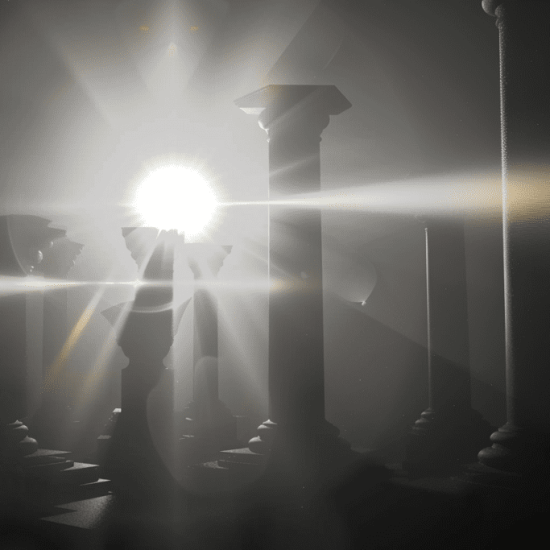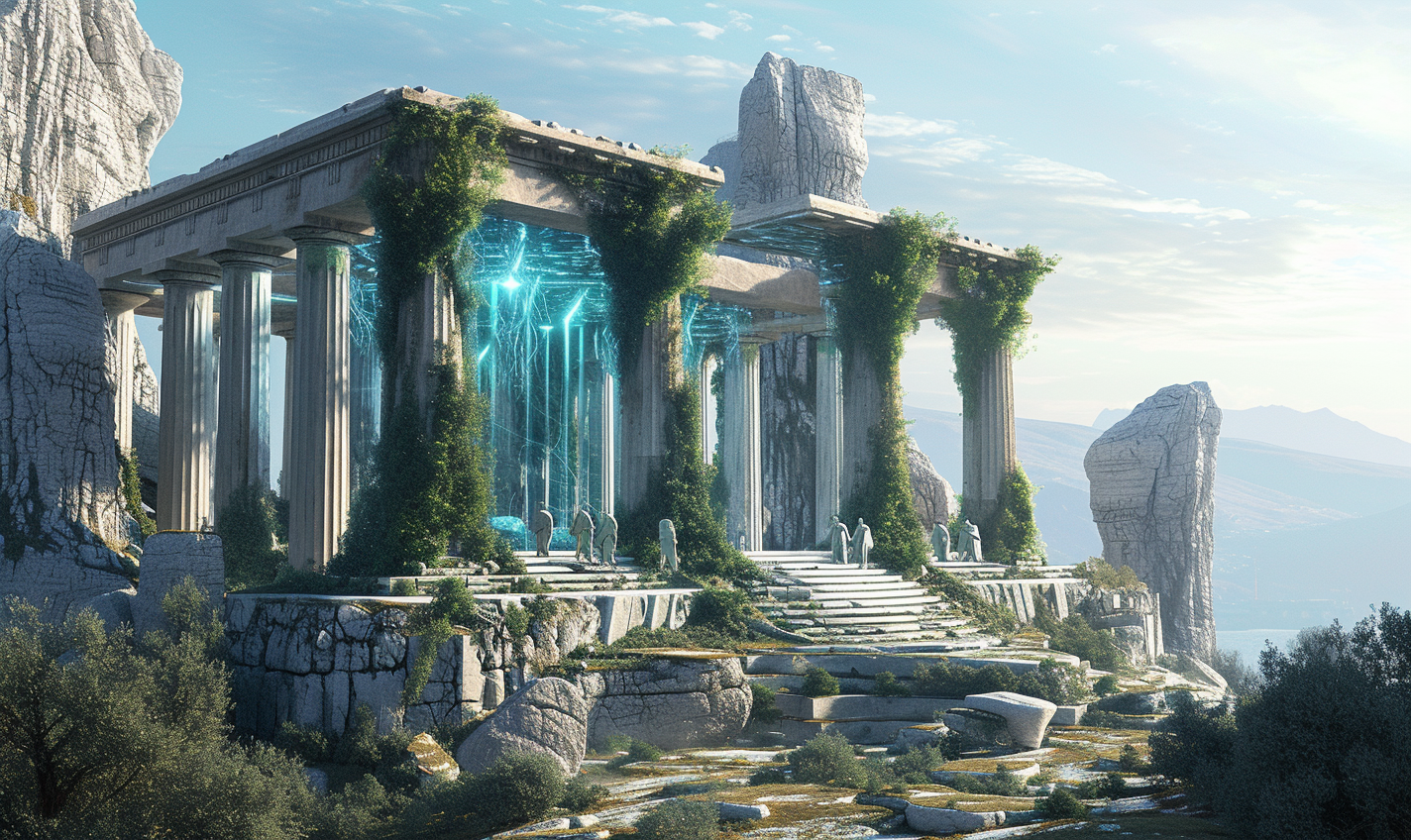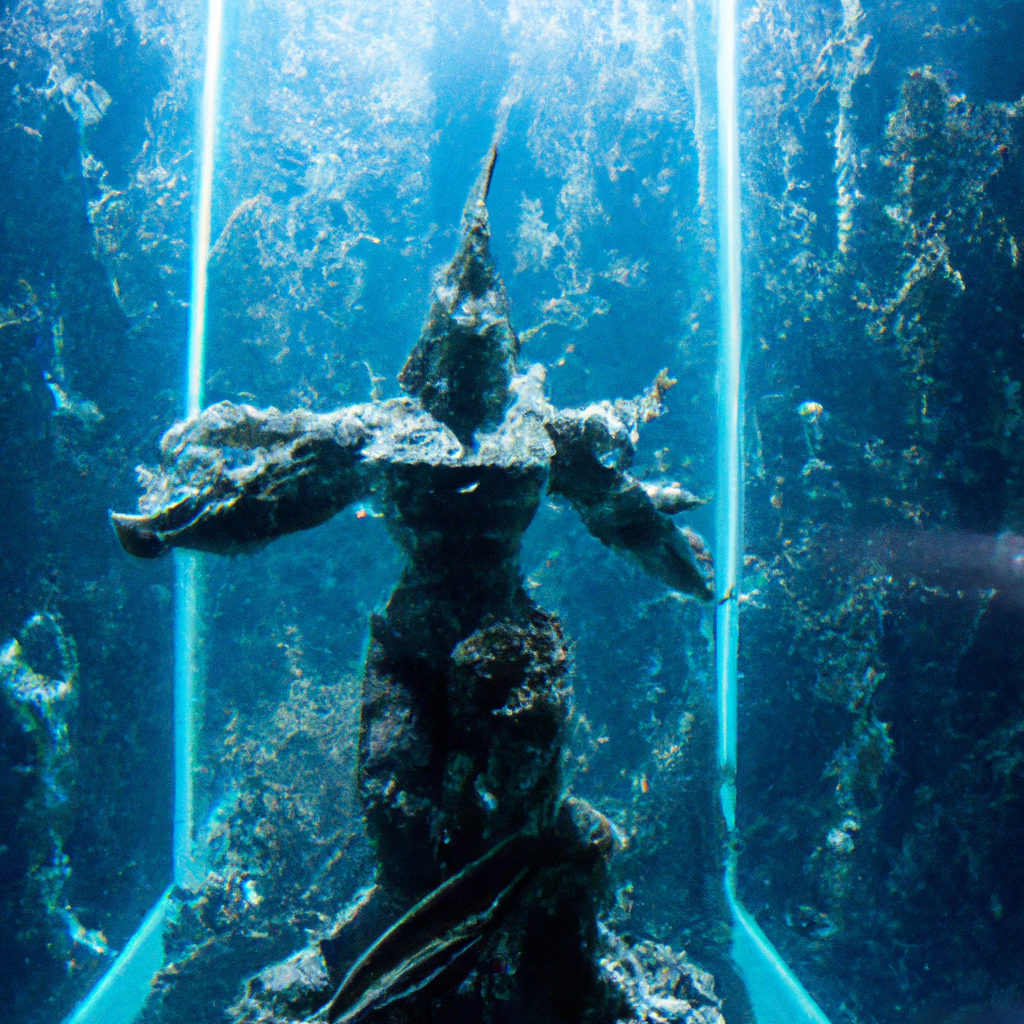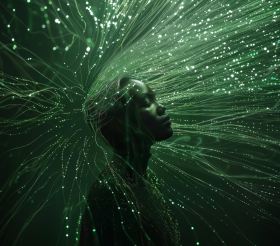Hellenofuturism
A new ideological blueprint for the future of Greece
FUTURES | 28.03.2022 | BY MIA SEA
How we can create futures worth dreaming of
I have spent the past years living in Arcadia. In the South of Greece. This life, in more ways than I can express, allowed me to reconnect with my tangled roots. As a Greek with a complex relationship to my homeland, I had been waiting my whole life to immerse myself in both the reality and the fantasy of a place like Arcadia.
Arcadia is in most parts a gem of unspoiled wilderness, where small villages have sprouted between the blue seas, the lush mountain trails and the endless olive fields. It is easy to understand why Arcadia became a mythological symbol of utopian dreams. So many of our myths began here, in those beautiful valleys that seem to whisper ethereal stories in our ear.
It has been a spellbinding place from which to contemplate the unfolding metamorphosis of the world. To participate in how we create the future of this specific beautiful piece of reality on our planet.
As a polymathic designer and an adventitious futurist, Arcadia has become my safe haven from which to research and embody my vision of the future. Through AEGIS, our borderless philanthropic incubator based here, we dive into the motions of change spreading around the world. Connecting this precious haven to wherever else life takes us through the work of our interconnected communities and organisational ecosystems. Over the years, we have been exploring the ways in which the future unfolds both for us in the Peloponnese and for the people we support around the world. Because of our base here, we dive into how Greece evolves in response to the currents shapeshifting the world, and how this Southern region specifically could blossom through our nurturing care. We spend our days trying to understand and test the possibilities of new technologies, exploring the lands’ realities and reading about their ecosystems, history, arts, development strategies and ideologies… Being able to do all this, while being physically immersed in the reality of this peaceful paradise and the life it created for us is a strange yet treasured adventure. As much as Arcadia is a symbol of life in harmony with nature, for me it has become a place where one can find balance between this rich living pulsating Earth we inhabit and the speeding technological evolution of our world as a whole. Here it seems that we could truly put technology and novel ideologies at the service of natural logic, and beyond that at the service of our history, of our communities, perhaps even to bring forth a future worth dreaming of.
However, as the pace of technological implementation and strategic governance is accelerating in Greece since the beginning of the COVID-19 pandemic, a threat is appearing. Beyond Greece, around the world, the tech industries and institutional networks of the West keep saturating our common grounds for global organisational capacity with misguiding Greek terminologies. On top of this, over time we have come to realize that this harmonious potential for a progressive realignment between humanity, nature and technology that is unfolding right now before our eyes in Hellenic territories like our peaceful Arcadia is at extremely high risk of being compromised in the few short years to come. The reason for that is the fact that the speed of cultural, humanitarian, social and environmental evolution is not accelerating in the same way as technological and corporate powers are. Both here in Greece —and in nations around the world that define the pace of innovation that we must attempt to keep up with— companies, technologies, funds and politics move, but culture, people’s perception of possibility and the resulting action needed is not following suit. We are right now at an extremely high risk of moving (or being moved) frighteningly fast in directions that will not serve us well for long. Right now we really risk losing agency over the future of our lands and the agency over our lives in an unprecedented way… and this perspective is terrifying. It is crucial to prevent that from happening. It is crucial to find ways for culture, activism, people’s organisational capacity and philanthropic action to accelerate at scale.
Greece’s cultural gap
I would argue that the Hellenic culture is, invisibly, one of the most international and insidiously appropriated cultures. And here is why I think that.
Greeks might disagree on many things, but most people living in Greece do agree on the fact that it is a place that feels like unfulfilled potential. In Greece very often life is extremely frustrating because of the country’s rigidity and, up until recently, quite reactionary short-sighted vision of the future. For women and marginalized groups, it is also a place where nationalist patriarchal nepotism dominates the way we navigate life.
And while there is always an ecosystem of reasons why things are the way they are, I would like to focus on one that I think is particularly overlooked and centrally important, like an epicenter from which so many other problems emanate.
One of the biggest silent wounds in the Greek legacy is its stolen potential for historic expression. Although this cultural erosion started centuries ago, all the way back, with rise of the Roman Empire which attempted to incorporate the full spectrum of the Greek culture into the Roman civilizational lore, the situation truly solidified later on, during the Ottoman invasion − which occurred right before the European Renaissance and devastated the Greek culture’s potential for evolution, ending only two hundred years ago. This time, the Greek cultural identity was not under threat of appropriation, but true erasure. And after these series of occupations it is a true miracle that it survived until this day.
After the liberation of Greece, it is under the burdens of world wars, political instability and economic crises that Greece has had to take its first steps into the modern world. This lost potential to create a continuum between the broken past and the projected future of the Hellenic culture has never been properly addressed, while the cultural wounds of this appropriation and attempted erasure has never been properly healed or forgotten.
With the colossal place that the Greek legacy occupies in our world’s societies, ranging from its influence on etymology, narratives, sciences all the way to arts and politics (and nowadays even business and, sadly, marketing) most people around the world do not realize that Greece, as a country, is barely two hundred years old. Before that, it was a land that saw centuries worth of destruction, cultural shackles, segregation and enslavement of its peoples.
When the Ottoman empire conquered Hellenic lands, Greeks fleeing the violence and occupation from the fourteenth century onwards have shifted forever the course of European history. The exodus of the Greeks to Italy and France, brought with them the Greek cultural legacy, and pushed forward the rise of the Renaissance, as well as that of naturalism and humanism. Greeks leaving the Hellenic lands to find refuge abroad meant that the artifacts, books, stories, methods, education and norms of the people came along too. And as their gradual arrival, paced by the expansion of the Ottoman empire, coincided with the invention and rise of the printed press, an illusion was created. An illusion that the Greek legacy had always been a widespread and easily accessible European staple, when in fact, it had just arrived. Right as the printing ecosystems arose, an entire portion of a coveted civilization took refuge in neighboring countries, seeking refuge for both themselves and their cultural legacy. Books and artifacts from the newly arriving Greeks went from the hands of their destitute owners and protectors into the early colonial ecosystem of Europe. Greek mythology, Greek art, Greek philosophy, Greek metaphysics and their relation to nature became mainstream sources of influence that were widely dispersed through the work and gaze of Western European intellectuals, artists and thought-leaders. The voices of these newly arrived Greeks however have been pushed out of the tale of history —Who were they? What were they working on? Why did they choose to bring certain books over others? What insights did they have about their culture and their place in France, Italy and other parts of Europe? This is one portion of history I certainly never learned about in school or university, despite having studied the rise of the Renaissance and the Enlightenment in France quite extensively. The analysis of the intellectual movements from the Renaissance to the Enlightenment completely erases the presence of their lives from history. These books, thoughts and education about Greek legacies and their ponderings are leapfrogged into the historic narrative of the Renaissance as if they had appeared in the lives of Descartes and Leonardo Da Vinci out of thin air. World history has framed the Renaissance, Humanism, Naturalism and the Enlightenment as these Renaissance men’s own achievement, that arose only from their vibrant society and genius. The oppression and asylum of the Greek people, as well as the reason why they brought their legacy abroad —along with the ethical expectations of temporary protection and safekeeping that it entailed for the countries West of Greece— has been taken out of the story, erasing at the same time the real condition of sovereign vulnerability that the Hellenic culture fell into. That is how the Greek culture became something of an intellectual token, and continued to be perceived as an inherited intellectual legacy all the way to and through the Enlightenment. And continues to this day, in ways that desacralize our inherent Hellenic cultural legacy continuously — reaching even its spiritual and religious layers, which are now thrown around on every second yoga studio, startup, space probe or cryptocurrency that pops into the world, at the appall of every Greek person who feels a reverence towards the sacred aspects of their roots.
It is important to understand when the Greek culture became this perceived international legacy, because it coincides with a time during which the Greeks had no homeland they could occupy freely, and no way to structure, control, guide or protect their legacy abroad. The reality of this fact has never been properly addressed or questioned under the lens of mainstream ethics. Nor has it been questioned how Greece is supposed to build its future legacy if our people do not have priority over how we decide that our cultural narrative evolves. Whether or not our vision of the future for our own legacy is outshined by whatever the rest of the world wants to do with it. Because the Greek legacy still transpires everywhere in the modern world today, especially the Global North, arguably more than any other ancient cultural legacy.
A lot can be argued about whether the Westernized intellectual elitism that placed Greek history at the beginning of “worthy” recorded human history is a good thing for anyone to still focus on nowadays — should we not all strive to focus on a global lens that does not minimize the importance of all the other lands and continents on our beautiful planet, so that our highest values and intellectual moral high grounds accurately reflect history and the evolution of the totality of humanity to try to make sense of our civilizations’ evolution and origins, along with a much needed quest for cultural understanding, equitable sovereignty and long-term peace? — but that is an argument for another day. The fact remains that the legacy of the Renaissance and the Enlightenment has tremendously evolved, enriched and culturally developed the countries that hosted these movements. And beyond this time period’s price in the blood and tears of the victims of the colonial extraction and slave trade (which is a bigger question of historic liberation and reparation to tackle on its own right), it is also in big part the Greek people and their culture that have tremendously enriched and culturally developed the Western European countries that hosted these movements. And in the process, in Europe and later the USA, the agency over the Greek culture entered some kind of perceived cultural public domain that the Greek people themselves — as refugees and occupied nations— never agreed to, and still feel cheated by.
Greek refugees were an undeniable influence of this historic shift in global culture, yet so little of this legacy has ever come back to benefit Greece and its peoples. The philhellenic movement might have helped liberate Greece from occupation in many ways, but in the end it mostly helped solidify the idea that the Greek culture matters primarily due to its appreciation and appropriation by other cultures. Its reflection upon Greek industries today, placing tourism above every other type of cooperative dynamic between Greece and the rest of the world reinforces this analysis: the world turns to Greece to passively look, to take in the culture, the landscapes and their historic weight, without further engaging with the country or its people. They mostly don’t need to either, since so much of the historic legacy and vestiges of the Greek history are kept abroad anyway, where they can be accessed and studied by foreign academics and researchers much more easily and with much more means than in Greece itself. It is an odd observation, to see a culture that a vast part of the world’s population feels tied to, enough to be comfortable with the idea of massively integrating its study, symbolism or tokenized experience into the course of daily life and business, yet without sharing any ethical outlook, any of the burdens or responsibilities that the native custodians of the Hellenic culture face in relations to its subsistence and evolution on their own land. Few ethical considerations are also ever laid out in respect to how Greeks can possibly be representatives of the Greek culture in the world, especially from a qualitative intellectual and artistic perspective, when the world has saturated the media and business spheres with stereotypical, devalued and distorted reflections and tokens of the Greek legacy. Who knows what the Greeks have to say about the fabulous tales of the Amazons, when Amazon delivers cheap products to the world’s doorstep (all the while skipping its service provision to Greece…). Can you spot how many Gaia yoga studios you can find, while Greek polytheist Hellenists, NGOs, storytellers or researchers can not find a place to put their research or narratives for Earth-related spirituality and environmental conservation online? The concept of metaverse, and Facebook slash Meta also seem to give us the impression that we can relegate to a realm of crypto-tech-brand an actual practical word used by an entire people, and what is furthermore a historically valued prefix that enables us to further our international intellectual legacy and improve our evolving sense-making capability and the logic of our world. Meta simply means beyond. Beyond a concept, beyond an idea, the next step. How are we supposed to discuss the next steps of anything, how can our linguistic horizons evolve beyond current ideological ideals, if the word that enabled us to do that for millennia is now not only trademarked, shadowbanned online (seen as branding competition) and utterly monopolizing, but also, quite importantly, intensely tacky as a result of this terminological monopoly through an often less than ethical corporate giant and the related anti-intellectual spammy techbro ecosystem.
From the Renaissance until this day, the continuous appropriation and re-adaptation of the Greek culture through the lens of globalizing mainstream culture systematically erases and westernizes the Hellenic roots of this legacy. The Greeks and their lands are completely erased, excluded or absent from most if not almost all interpretations and reflections of their history around the world. I would honestly encourage you to look at the first references of Greek culture that you can find around you, be it in the media, in literature, in the arts or in business, and check whether this work has any ties or presence whatsoever in Greece. How many businesses will sell you products under the umbrella of a Greek name, without even serving the public of the lands that gave them this brand. How many films tell Greek stories without ever showing Hellenic lands or including Greek actors or Greek media partners. How many businesses and brands capitalize on Greek polytheism, relegating the Greek history of spirituality to a marketing angle — While in Greece Hellenismos (the practice of Greek polytheism and its traditional celebrations), and the attempts by many generations of Hellenic people to bring back those spiritual traditions back to life is met with censorship, sabotage and suppression of freedoms of spiritual expression. The press in Greece also ranks among the third lowest tier in the world in fronts of freedom of expression, making it very hard to spread innovative ideas and creatively daring directions, as a caution about losses of sources of funding and constant suspiscion is omnipresent. In the end, the Greeks struggle daily to experience their own culture on their lands and make a dent in their own cultural evolution, and this fact makes it that much harder to see the world boast the Greek cultural symbolism and narratives as their own rightful heritage and lineage without any consideration or shared responsibility over these modern struggles of disempowerment and stagnation that the Hellenic culture suffers from.
This overlooked fact needs to become a conversation, because the truth is that this culture, the Greek culture stemming all the way from ancient times, is technically – through infrastructure, media productions, academia and aesthetic or symbolic markers – much more accessible and visible abroad than it is in Greece. Most attempts that Greek people and institutions make to become part of the Greek legacy seen abroad fail, outshined by foreign budgets and power that Greek people can not compete with.
On a personal note, I have endeavored numerous times to initiate projects overseas which, in my view, were earnest efforts to extend the Greek perspective and legacy into modern dialogues. However, ironically these initiatives were more than once overshadowed by competing projects that tokenized Greek symbolism to lend a certain mythic allure to their concept or narrative, albeit with little relevance to the core cultural subject matter. While the selected projects might have appeared superior to the decision-makers—whose motivations in the realm of arts and culture can be quite subjective—I contend that the preference often veered towards projects that served the Global North while using Greek symbolism to elevate the concept through an easy shortcut to an illusion of mythical allure, rather than those aiming to truly elevate the Greek legacy and launch it into future horizons. In essence, the pattern seems to be that projects, companies or products that leverage a token of Greek culture, while relegating its often original spiritual or philosophical symbolism to a state of sanitized branding clutch, tend to outshine endeavors aimed at continuing the Hellenic legacy by the Greeks themselves. Along the same lines, visions and stories that utilize the Greek culture while keeping it in this obscurely defined place as an internationally available culture eclipse anything that may be an attempt at the continuation of the Hellenic legacy by its own people. And this is where we can find again the beginning of this unethical pattern. And the rise of an important question. Is it okay to milk the Greek legacy to the point where it means that Greek people are denied a seat at the table of their own culture?
Greece has faced, and still faces, enormous economic and structural obstacles that keep the country from thriving on cultural fronts. And this is so important to remember. Greece and the Greek people face tremendous cultural obstacles halting greatly the ways in which the country evolves, innovates and pushes forward its creative legacy into the future.
Nowadays, as a land, Greece is a place filled with apathy, inherited from generations having to live with the consequences and burdens of centuries of oppression and the global cultural appropriation that followed it. Corruption, xenophobia, nepotism, patriarchal hierarchies, clientelism, misogyny and systemic oppression of everything perceived as “other” are all present problems, and are all the reasons why Greece is stuck in its own cultural limitations. Everywhere we go, we feel it and we know it. But the reason why things are the way they are have not been created by the Greek people or their culture —or even by politicians for that matter, who may certainly have often done little to change things or to behave ethically enough to raise the bar, but who ultimately also always inherit an overly tangled and rigid system of governance that is so deeply saturated in historical systemic burdens and bureaucratic knots that it makes it a gargantuan load to fix over a lifetime, let alone over an elected term. All these systemic flaws and problems that Greece suffers from, they have evolved over centuries of interconnected events that took scalable cultural agency away from the Hellenic people, and trapped Greece in a space of true disempowerment and relationship norms with the rest of the world deeply rooted in stagnant and apathetic patterns of exchange.
This wasted potential for evolution and cultural expression lives in the collective unconscious of the Greek people around the world, who are holding on to ancient history, mythology, symbolism and archeology as the primary way of preserving the Hellenic identity through time, instead of even trying to patch together the fragmented legacy that is the state of modern Greek culture.
In parallel, we should also look more critically at our representation and connection to our world’s leading powers. The Greek civilization did become a trope of the European elite between the Renaissance and the age of Enlightenment, and now it does serve as an easy symbolic trope to the world. Throughout history, our civilization’s art, temples and legacies in all forms were sold and plundered, shipped to foreign metropolitan museums en masse to become trophies and tokens of intellectual history. And so much of the rest was distorted or destroyed by the occupying forces through time attempting to incorporate, or at times even erase aspects of the Greek culture forever. We need to reckon with the understanding that any cultural legacy acquired from a people in a state of war, enslavement, colonization or sovereign vulnerability is not an ethical form of cultural amalgamation. It will always contain elements of exploitation and appropriation. And as with any questions of past historic cultural mistakes and harm, there are ethical matters to discuss in order to solve the burdens of history from our civilizational continuum towards peaceful and thriving coexistence.
Now however, we have reached a place where all these conversations and considerations need to accelerate. Because through the rise of automation, AI and all other technologies that seem to push the boundaries of what we considered up until now as humanly possible, this habit of mythologizing tech and corporate power, while, in mainstream culture, erasing the whole world’s legacies and stories in order to use primarily the Greek symbolism and history as a tool of intellectual referencing and storytelling… all this is increasing in volume, and becoming automated into AI and algorithms in a way that might get us stuck even further in this flawed loop that takes so much away from humanity and our potential to evolve into something desirable by all.
This is not good. It is not good for the people of the world and the vast array of cultures made invisible when they should be looked up to and referenced, and it is not good for the Hellenic legacy which is kept from evolving along with the world.
When we open any general world history book, it often seems like Greek history is akin to some sort of civilizational big bang and ultimately just belongs to the world. That it is somehow falling under the legacy of the richest nations of our world, as if the Greeks were part of this direct civilizational lineage. How did this perception become so flawed and widely accepted?
The Hellenic people did not die out leaving their history unclaimed or morph into the other European nations and the United States. The Hellenic people and their historic lands are still here.
Until this day, the most driven people of Greece seek the validations and approval of Western Europe or the United States to support their legitimacy in life, rather than contributing to the future development of their own homeland. Considering Greece’s economic situation and lower wage standards, it is completely understandable, yet what a shame it is to see how slow things are to change in Greece for this exact reason.
Greek culture has been appropriated around the world to the point where there is little commonly noticed division between the Global North’s inherited historic legacy and the Greek history. Yet against all odds, the Greeks are still here, and they are entitled to claim the respect, priority, credit and rights to be centered in their own history and culture.
It is truly time for us all to rethink the way we interact with the Greek culture and whether it is ethical to keep things from evolving. And for Hellenic lands, it is time to find their legitimate place both in Europe, in the world and in history, paving a renewed sense of identity that can make Greece, its islands and its sister nation of Cyprus, with its own rich and important cultural identity, feel culturally strong enough to be its primary driving force in the ever evolving future history of our world. Additionally, we need to explore as well all the ways in which addressing these problems can keep us away from becoming a nation that is a catalyst for misguided overcompensations of inferiority-complexes in relations to the modern world order and their resulting anti-intellectual or pseudo-intellectual nationalist fascist ideologies that could so easily separate us further away from a hopeful future. We need to find ways in which the Hellenic culture can find its place of comfort as an international culture, since it is so deeply entangled already with the rest of our world. We must find ways to guide future philhellenic norms without requests for ethical analyses and discussions becoming grounds for the emergence of animosity, guilt or suppression but rather an encouragement for harvesting understanding, cooperation and cocreation. And we must find ways to keep evolving without disappearing or perpetuating oppression (historically, as both oppressed and oppressors), in this beautiful, entangled and chaotic world we all inhabit and share.
This is a complex and delicate task, that can be more easily answered by visions rather than tools. This is why we want to introduce to the world the concept of Hellenofuturism. As a movement, Hellenofuturism is an attempt for this much needed cultural rebirth.
What follows are the first notes leading towards an ever evolving future-focused manifesto.
“Greece is not an extinct place from the Ancient World. Against all odds, the Greeks are still here, and they are entitled to claim the respect, credit and rights to be included in their own history and culture. “
Why Hellenofuturism
Hellenofuturism is a futures philosophy and a science-fiction / fantasy aesthetic that explores the unfolding vision for the future of the Greek legacy. Hellenofuturism places itself at the intersection between historic heritage, cultural expression, sciences, arts and technology.
At the heart of hellenofuturism is a belief in the return to the wonder of storytelling as an expression of our society’s evolving values and collective dreams. And to make sure we finally understand our communities fully, we are interested in revisiting the stories and symbols we perpetuate from perspectives that might have been silenced or ignored in the past, in order to finally paint a full and rich vision that includes everyone and opresses no one, throughout the mythologies past and future.
Beyond that, we hold dear the legacy of polymathic exploration, aesthete contemplation, creative experimentation, community-driven support and democratic collaboration. Just like our ancestors, we are in every way inspired by the world around us, the beauty of nature and the power of creation. This is the lens through which we guide the future.
Note that even though we acknowledge the need to also utilise the synonym that could define our work as “Grecofuturism”, we choose the term “Hellenofuturism” instead of “Grecofuturism” as Hellenes and Hellas is what Greek people call themselves and their cultural lands today, while the terms Greek/Greco/Greece emerged as a widespread designation of Hellenic people under occupation —and even if the term’s root does trace back to a small ancient Greek community, who referred to themselves as the Graikos, it was still not the term preferred and adopted by the Greeks themselves throughout the Hellenic lands and history, until this day. So, in order to do justice to this desire of reconnecting with a disempowered identity, Hellenofuturism and designations of Greek legacies under the terms related to Hellenism and Hellenic etymology are the more aspirational and overall preferred terminology.
It is however through NeoGrecian aesthetics that a large part of this Hellenofuturist exploration is taking shape —through my work and that of our artistic collaborators. Utilising the codes embedded in Grecian symbolism, rather than all of the spectrum of Hellenic and Hellenistic heritage.
The Mission
Our mission is to carve out an aspirational and awe-inspiring vision for the future of the Greek legacy. We want to help people dream, create, experiment and collaborate.
Because we believe in a beautiful future and we want to help it unfold.
We do this through creation. We create ways in which we can collectively project ourselves into future fantasies and plan from there. We also curate and nurture the circles of creators, thinkers, activists and makers that are allowing hellenofuturism to rise in healthy and beautiful directions.
“We envision Greece as a cradle for a creative awakening, using the beauty of our lands and the artistry of our peoples to shape a dreamy reality that allows us to believe that the best is yet to come.”
The Vision
The future is a spectrum of possibilities. We envision a future in which new mythologies unfold, evolving through stories, old and new, inspiring the rise of new environments, admirable characters and unifying communities able to bring a sense of meaning to a cultural rebirth of Hellenic values, rooted in the spiritual communion between nature, our world, our past and our future. We envision Greece as a cradle for a creative awakening, using the beauty of our lands and the artistry of our peoples to shape a dreamy reality that allows us to believe that the best is yet to come. Making peace with the past. Embracing our complexe and multiculturally driven history. Merging the cutting-edge of technology with the limitless creativity of our minds and stories.
Imagine how beautiful the future could be if we nurtured all that is kind and spellbinding, building it in a way that allows us all to heal, unite, create and thrive…
And so it begins…
In order to structure and further shape the hellenofuturist vision, we are preparing to a series of artistic and cooperative projects to ignite this spark of logic and inspiration, and launch along with it the Hellenofuturist Foundation, through which we will do our best to empower and bring into the spotlight those who are nurturing the cultural rebirth of the Hellenic legacy and future-focused cultural agency, both in Greece and around the world.
Over the course of the years to come, we will expand upon this concept and lay out not only how to support it but how to help us navigate the Greek symbolism and identity towards the future.
For all those around the world, from all countries and backgrounds, who are to this day inspired by the legacy that Greek history has left in the world and actively express it through their work, we want to encourage you to develop more ties with our countries and its people, so that your appreciation and talent can reverberate back and serve the source that inspired it.
This can be achieved by bringing more art, exhibits, concerts, and cultural productions of all kinds to (or in collaboration with) Greece and Cyprus, as well as by nurturing collaborations and networks with the people of Greece and Cyprus.
And now, it is time to extend an invitation to aspiring Hellenofuturists. Let’s create amazing realities together, and inspire the future to blossom.

Image Credit: LIght Installation Exploration by Mia Sea

Image Credit: Mia Sea



Founder @ AEGIS



